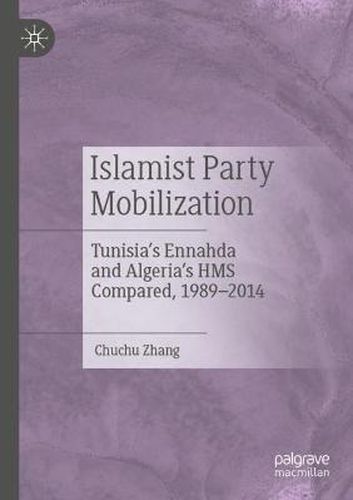Readings Newsletter
Become a Readings Member to make your shopping experience even easier.
Sign in or sign up for free!
You’re not far away from qualifying for FREE standard shipping within Australia
You’ve qualified for FREE standard shipping within Australia
The cart is loading…






This title is printed to order. This book may have been self-published. If so, we cannot guarantee the quality of the content. In the main most books will have gone through the editing process however some may not. We therefore suggest that you be aware of this before ordering this book. If in doubt check either the author or publisher’s details as we are unable to accept any returns unless they are faulty. Please contact us if you have any questions.
This book aims to explore how Islamist parties mobilize debates, discourses, and environments in electoral authoritarian systems. Interrelating three theoretical schools, Electoral Authoritarianism Theory, Protest Voting Theory, and Political Process Theory, it adopts and expands on a demand-and-supply framework to approach the subject in a novel way, and adapts them to address North Africa, a region in which such theoretical scholarship has until now not been conducted. In-depth case studies focus on two Islamist parties in North Africa, Tunisia’s Ennahda and Algeria’s HMS, both of which adopted the Muslim Brotherhood model, had charismatic leaders, and were active in the political scene from 1989-2014, the period between their first electoral trial and their electoral participation after taking part in governance. The chapters proceed chronologically, providing a historical treatment of the evolution of Ennahda and the HMS since their inception and addressing their development in two and a half decades.
$9.00 standard shipping within Australia
FREE standard shipping within Australia for orders over $100.00
Express & International shipping calculated at checkout
This title is printed to order. This book may have been self-published. If so, we cannot guarantee the quality of the content. In the main most books will have gone through the editing process however some may not. We therefore suggest that you be aware of this before ordering this book. If in doubt check either the author or publisher’s details as we are unable to accept any returns unless they are faulty. Please contact us if you have any questions.
This book aims to explore how Islamist parties mobilize debates, discourses, and environments in electoral authoritarian systems. Interrelating three theoretical schools, Electoral Authoritarianism Theory, Protest Voting Theory, and Political Process Theory, it adopts and expands on a demand-and-supply framework to approach the subject in a novel way, and adapts them to address North Africa, a region in which such theoretical scholarship has until now not been conducted. In-depth case studies focus on two Islamist parties in North Africa, Tunisia’s Ennahda and Algeria’s HMS, both of which adopted the Muslim Brotherhood model, had charismatic leaders, and were active in the political scene from 1989-2014, the period between their first electoral trial and their electoral participation after taking part in governance. The chapters proceed chronologically, providing a historical treatment of the evolution of Ennahda and the HMS since their inception and addressing their development in two and a half decades.